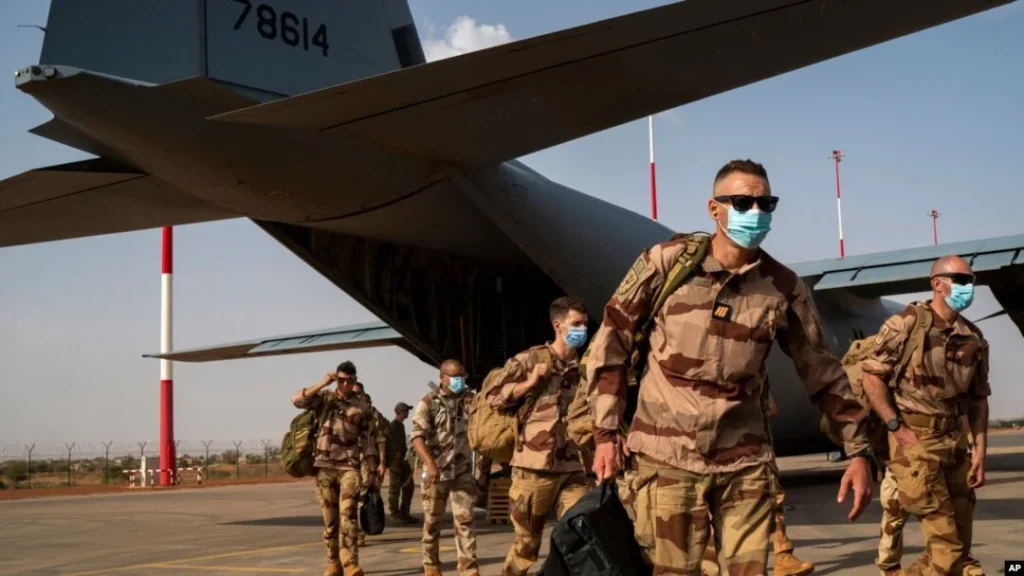On March 28, 2022, France intensified military cooperation with Niger as it withdrew over 2,400 troops from Mali, part of Operation Barkhane, due to “multiple obstructions” by Mali’s junta, per President Emmanuel Macron’s February announcement. Colonel Hervé Pierre, overseeing the “extremely complex” reorganization, told RFI that Niger would become the new hub, with a command center in Niamey. “The border is a favoured spot for armed terrorists to settle, hide and refuel,” Pierre stated, explaining the focus on Mali-Niger border areas to counter Islamist insurgents.
Withdrawal Logistics and Bases
The pullout, expected to span four to six months, involved transferring troops from three northern Mali bases—Gao, Gossi, and Menaka—to Niger and other Sahel countries. “France… wanted to be certain that Malian troops were in a position to take over its bases,” said General Laurent Michon, Barkhane’s commander, emphasizing coordination to avoid a security vacuum. France’s Ministry of Defence reported Gao as the primary base, housing the tactical desert unit, with Gossi near Burkina Faso and Menaka near Niger. Niger’s parliament was set to vote on the enhanced cooperation deal, expected to pass, per RFI.
Rising Violence and Anti-French Sentiment
The shift coincided with escalating violence in Mali, with 400 civilians killed in early 2022 by the Islamic State’s local wing, per ACLED data. “The withdrawal… is part of wider plans for Paris and its European partners to rethink their strategy,” analysts noted, following nine years of fighting since Barkhane’s 2013 launch at Mali’s request. Growing anti-French sentiment across the Sahel, fueled by perceptions of neocolonialism, complicated operations. Macron rejected failure comparisons to the U.S. Afghanistan withdrawal, stating, “We cannot remain militarily engaged alongside de-facto authorities whose strategy… we do not share.”
Mali’s Junta and New Alliances
Mali’s military junta, in power since a 2020 coup, strained relations with France, expelling its ambassador in February 2022 and aligning with Russia’s Wagner Group. “The withdrawal will also allow Mali’s… junta… to think about its own strategic alliances,” with Russia and Turkey showing interest, per RFI. This shift marked a decline in France’s influence, with 48 of 53 Barkhane deaths occurring in Mali, per a 2022 Le Monde report. The junta’s refusal to hold elections by February 2022 further eroded Franco-Malian ties.
Regional and Future Implications
By late March 2022, France had redeployed forces to Niger, with 1,000 troops and air assets in Niamey, per Al Jazeera. The Takuba Task Force, a European-led mission, also withdrew from Mali. “Niger will now be placed at the heart of the Barkhane operation,” Pierre noted, with operations targeting border zones. Despite the retreat, France maintained 2,500 troops across the Sahel, per Le Monde, aiming to sustain counterterrorism efforts. The move reflected a broader recalibration of France’s Sahel strategy amid rising regional instability and geopolitical shifts, with ECOWAS monitoring Mali’s transition closely.






